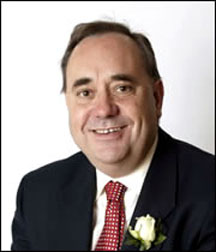LONDON, (Reuters) British voters punished the Liberal Democrats for their role in a deficit-cutting government yesterday, rejecting the party’s efforts to reform the electoral system and deserting it in local elections.
The outcome points to a rockier future for Britain’s Conservative-led coalition government, with analysts predicting a more combative stance from the Lib Dems, the junior partners.
The Scottish National Party (SNP) scored a bumper haul, winning an outright majority in Scotland’s assembly — which has limited powers devolved from London — and openingthe door for a referendum on secession from the rest of Britain.

A fully independent Scotland could change the handling of profits from North Sea oil fields, a crucial source of tax revenue for cash-strapped Britain.
It might also have implications for the Royal Bank of Scotland, bailed out during the global financial crisis and now 83-percent owned by the state.
Voters overwhelmingly rejected a proposed reform to Britain’s voting system in a blow to the Lib Dems and their leader Nick Clegg, who had championed the change.
The campaign for Thursday’s referendum on voting reform strained the year-old coalition, prompting angry exchanges between Lib Dems, who backed change, and Conservative defenders of the current system.
Both Conservative Prime Minister David Cameron and Clegg, the deputy prime minister, pledged yesterday to continue working together in the coalition, which has embarked on tough austerity policies to slash Britain’s record peacetime budget deficit.
CONSERVATIVE
VOTE HOLDS UP
Cameron, whose party saw its vote hold up in local elections, said he believed the coalition would survive until 2015 and complete its austerity programme.
“Now Conservatives and Liberal Democrats must come together again in this government and provide strong, decisive long-term good government in the national interest for Britain,” he said.
The main opposition Labour Party, which has overtaken the Conservatives in opinion polls, had mixed results. While support in local council elections in England was positive, the party took a beating in Scotland, normally a heartland of its support.
SNP leader Alex Salmond, who remains Scotland’s first minister after his party’s stunning gains, said he would speak to Cameron to lay down markers over what the result meant for Scotland’s relationship with the United Kingdom.
“We’ve given ourselves the permission to be bold,” he said.
The party aims to hold a vote on independence from Britain within five years.





